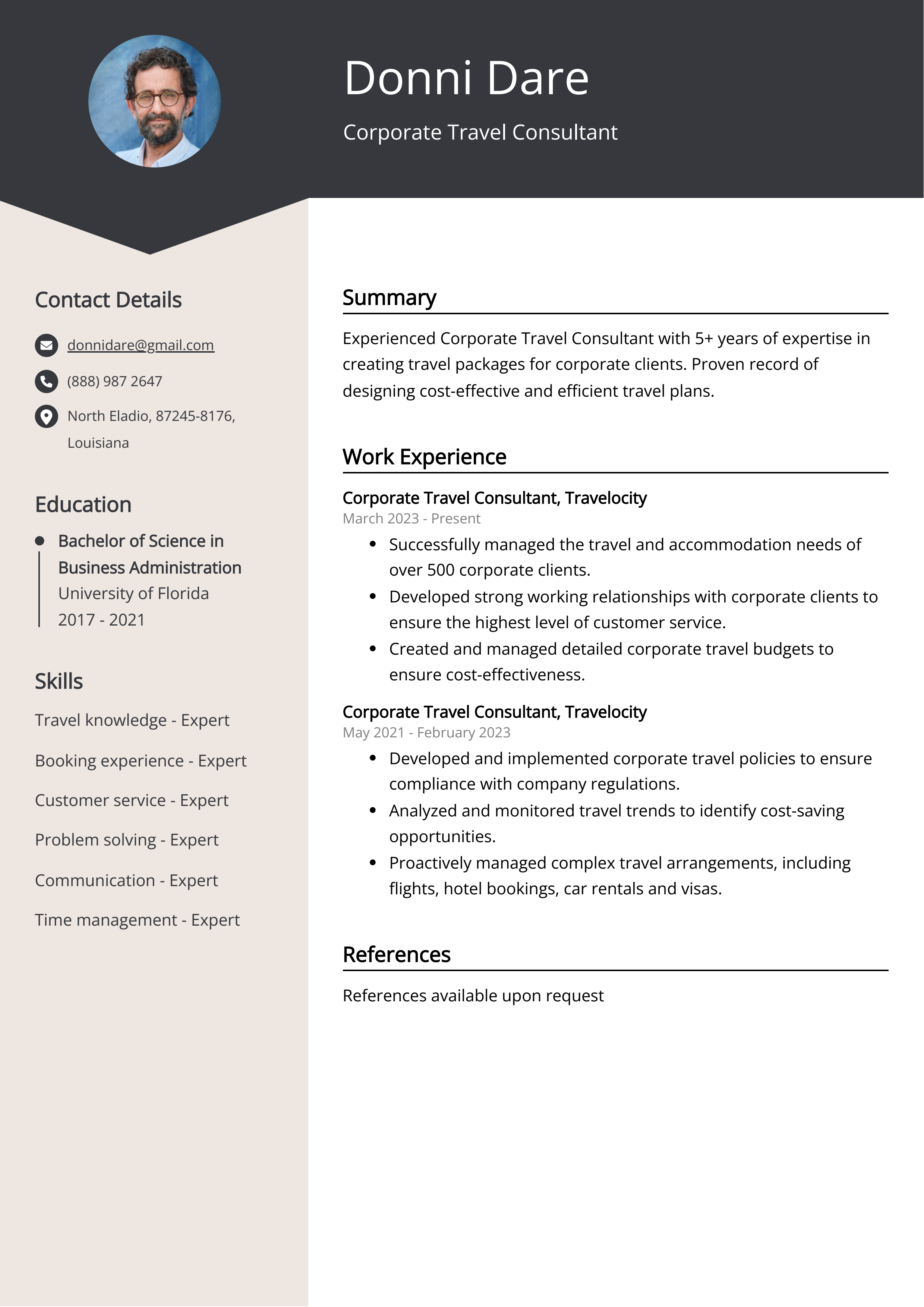Are you passionate about travel and looking for a career that allows you to explore the globe? Corporate travel agents play a crucial role in ensuring that businesses’ travel needs are met efficiently. This comprehensive guide will delve into everything you need to know about corporate travel agent jobs, from responsibilities and skills to the advantages and challenges of this profession.
What is a Corporate Travel Agent?
A corporate travel agent is a professional who specializes in managing and booking travel arrangements for businesses and their employees. This role requires understanding clients’ travel policies, budget constraints, and preferences, ensuring a smooth and efficient travel experience.
Key Responsibilities of a Corporate Travel Agent
Travel Planning and Booking
Corporate travel agents are responsible for planning and booking various travel components, including flights, accommodations, car rentals, and other transportation methods. They must ensure that all arrangements align with the company’s travel policies.
Client Communication
Effective communication is vital. Travel agents interact with clients to understand their travel needs and preferences, providing personalized solutions that suit their requirements.
Problem Solving
Travel plans can change unexpectedly. Whether it’s a canceled flight or a last-minute meeting, corporate travel agents must quickly find solutions and alternatives to keep the business running smoothly.
Expense Management
Managing travel expenses is a significant part of a corporate travel agent’s job. They must keep within budget, negotiate rates with suppliers, and provide clients with cost-effective options.

Essential Skills Required
Attention to Detail
Travel arrangements involve multiple components, and a small error can lead to significant issues. Attention to detail is crucial for ensuring all bookings are accurate.
Interpersonal Skills
Building strong relationships with clients and suppliers is essential. This requires excellent interpersonal skills, including active listening and empathy.

Time Management
Corporate travel agents often work under tight deadlines and must manage their time effectively to ensure all bookings are completed promptly.
Knowledge of Travel Regulations
Understanding travel regulations, including visa requirements and travel restrictions, is vital for providing accurate advice to clients.

Pros and Cons of Being a Corporate Travel Agent
Pros
- Travel Opportunities: Many corporate travel agents have the chance to travel for work, attending conferences or visiting clients.
- Networking: This job allows you to meet various professionals across industries, expanding your network.
- Job Satisfaction: Helping clients navigate their travel needs can be highly rewarding, especially when they have a positive travel experience.
Cons
- High Stress: The job can be stressful, especially when clients face travel disruptions.
- Long Hours: Corporate travel agents may need to work beyond regular office hours to accommodate clients’ schedules.
- Market Fluctuations: Changes in the travel industry can affect job stability and work volume.

Becoming a Corporate Travel Agent
Educational Requirements
While a degree in travel management or hospitality can be beneficial, it’s not always necessary. Many corporate travel agents come from diverse educational backgrounds. Relevant certifications, such as the Certified Travel Associate (CTA), can enhance job prospects.
Gaining Experience
Internships or entry-level positions at travel agencies can provide valuable hands-on experience. This exposure is essential for understanding the day-to-day tasks involved in corporate travel management.

Travel Tips for Corporate Trips
Plan Ahead
When organizing a corporate trip, advanced planning is key. Booking flights and accommodations early can lead to significant cost savings.
Be Flexible
Encourage clients to be flexible with travel dates and times to find better deals and more convenient travel options.

Utilize Technology
Leverage travel management tools and software to streamline the booking process and keep track of itineraries and expenses.
Popular Corporate Travel Destinations
New York City
As a major business hub, New York City attracts countless corporate travelers. The vibrant city offers a wealth of meeting venues, accommodations, and dining options.

San Francisco
Home to Silicon Valley, San Francisco is ideal for tech companies. Its unique blend of culture and business makes it a favorite among corporate travelers.
London
London’s global influence makes it a top destination for business meetings, offering extensive transportation options and world-class accommodations.
Comparing Top Travel Management Software
| Software | Features | Rating | Price |
|---|---|---|---|
| Concur | Expense management, travel booking, reporting | 4.5/5 | Contact for pricing |
| TravelPerk | Flexible bookings, expense tracking, integrations | 4.7/5 | Contact for pricing |
| Expedia for Business | Hotel bookings, flight reservations, travel itineraries | 4.3/5 | Contact for pricing |
FAQs About Corporate Travel Agent Jobs
What does a corporate travel agent do?
A corporate travel agent manages travel arrangements for businesses, ensuring compliance with travel policies while optimizing costs and providing excellent service.
How much do corporate travel agents earn?
The salary of a corporate travel agent can vary based on location, experience, and the size of the company. On average, salaries range from $40,000 to $70,000 per year, with potential bonuses based on performance.
Is certification necessary to become a corporate travel agent?
While not required, certifications such as the Certified Travel Associate (CTA) can enhance your qualifications and increase your job prospects in the competitive travel industry.
What are the typical work hours for a corporate travel agent?
Corporate travel agents often work standard office hours, with occasional nights and weekends required to cater to clients’ travel needs.